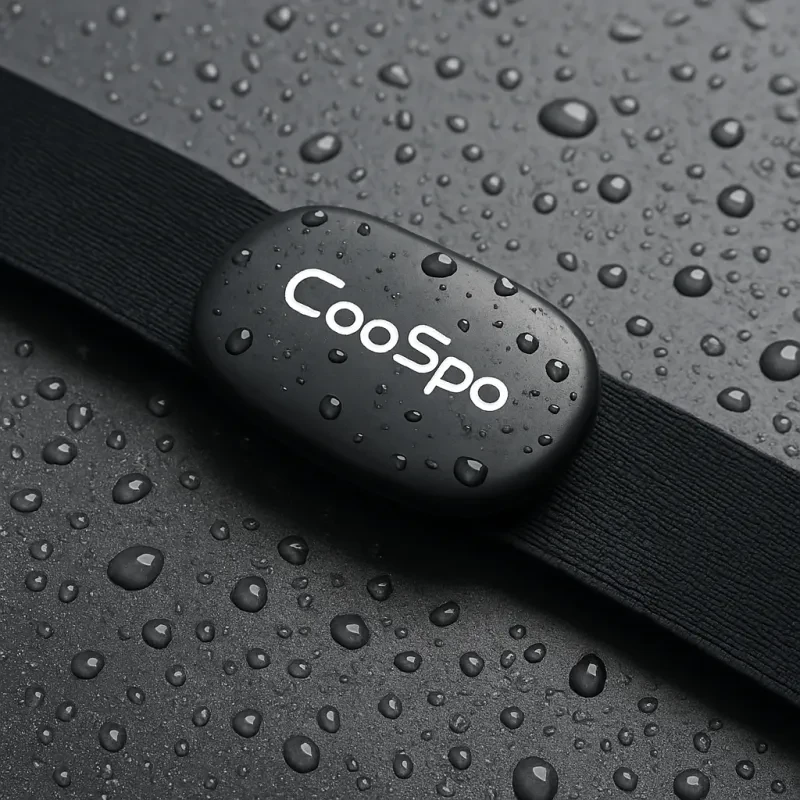The Need for a Digital Detox: Understanding the Impact of Hyperconnectivity on Mental Clarity
The Need for a Digital Detox: Understanding the Impact of Hyperconnectivity on Mental Clarity
We live in a world where digital devices have become an integral part of our daily lives. From smartphones and laptops to social media platforms and streaming services, we are constantly surrounded by technology and connected to the digital realm. While this hyperconnectivity has its advantages, it also comes with a significant downside – the negative impact on our mental clarity.
Today, more than ever, we find ourselves glued to our screens, constantly checking emails, scrolling through social media feeds, and consuming vast amounts of information. This constant stream of digital stimuli can overwhelm our brains and hinder our ability to think clearly, focus, and make decisions effectively.
One of the primary consequences of hyperconnectivity is the decreased attention span. With a constant influx of notifications and distractions, our ability to concentrate on a single task is greatly compromised. Our brains become accustomed to constant stimulation, making it difficult to sustain attention for prolonged periods. This scattered focus not only affects our productivity but also has a profound impact on our mental well-being.
Moreover, the constant exposure to digital screens interrupts our sleep patterns. The blue light emitted by devices suppresses the production of melatonin, a hormone that regulates sleep cycles. As a result, our quality of sleep suffers, leaving us feeling tired, irritable, and unable to perform at our best mentally.
Additionally, the virtual world can significantly contribute to feelings of anxiety, stress, and even depression. The constant comparison to others on social media, the fear of missing out on the latest news or trends, and the pressure to always be available and connected can take a toll on our mental health. We become consumed by the digital world, leading to a lack of presence and mindfulness in our everyday lives.
Recognizing the need to reclaim mental clarity, many individuals are turning to digital detoxes – intentional periods of time where they disconnect from technology and reconnect with themselves and the physical world. By taking a break from digital distractions, individuals can recalibrate their brains, replenish their mental energy, and improve their overall well-being.
During a digital detox, individuals can engage in activities that promote mental clarity and cultivate a sense of presence. This can include spending time in nature, practicing mindfulness and meditation, engaging in physical exercise, reading books, or having face-to-face interactions with loved ones. Disconnecting from the digital realm allows us to slow down, focus on the present moment, and reevaluate our priorities.
In conclusion, the hyperconnectivity of our modern world takes a toll on our mental clarity. Constant exposure to digital stimuli, decreased attention spans, disrupted sleep patterns, and heightened levels of stress and anxiety are just a few of the consequences we face. By recognizing the need for a digital detox, we can prioritize mental well-being, reconnect with ourselves, and regain the clarity necessary to thrive in an increasingly interconnected world.
Strategies for a Successful Digital Detox: Practical Tips and Techniques to Reclaim Mental Clarity
Strategies for a Successful Digital Detox
Living in a hyperconnected world has its benefits, but it can also take a toll on our mental well-being. With constant notifications, social media pressures, and an overwhelming stream of information, it's important to take time for ourselves and engage in a digital detox. Disconnecting from our devices and reconnecting with the present moment can help us regain mental clarity and find balance in our lives. Here are some practical tips and techniques to successfully embark on a digital detox:
1. Set Clear Goals and Boundaries
Before starting your digital detox, it's essential to set clear goals for yourself. Determine why you want to detox and what you hope to achieve. Are you trying to reduce stress, improve productivity, or regain a sense of control over your time? Setting these goals will help you stay motivated throughout the process.
In addition to setting goals, establish boundaries during your detox. Decide how long you want your detox to last and what activities or devices will be allowed. Some people prefer a complete break from all technology, while others may allow certain tools for work or emergencies.
2. Create a Supportive Environment
Inform your friends, family, and colleagues about your digital detox plans. Explain why it's important to you and ask for their support. Encourage them to join you in setting boundaries during specific times, such as meal times or social gatherings, so everyone can be fully present and engaged with one another.
Consider removing any digital distractions from your physical environment. Put your phone out of sight or turn off notifications to resist the urge to check it constantly. Designate specific spaces in your home as technology-free zones to promote relaxation and create a digital-free sanctuary.
3. Engage in Offline Activities
During your digital detox, make time for activities that don't involve screens. Rediscover hobbies, engage in physical exercise, spend quality time with loved ones, or explore the outdoors. Engaging in offline activities not only helps distract from digital cravings but also allows you to fully immerse yourself in the present moment and nourish your mind and body.
Practice mindfulness and meditation. Spend a few minutes each day practicing deep breathing, focusing on the present, and cultivating gratitude. These practices can help calm your mind, reduce stress, and regain mental clarity.
4. Establish New Habits
A digital detox is an excellent opportunity to establish new habits. Use this time to develop a healthy relationship with technology moving forward. Consider implementing practical strategies like designating specific time slots for checking emails or social media, setting device-free hours before bed, or even scheduling regular mini-detox sessions throughout the week.
Take advantage of the extra time and mental clarity gained from your detox to engage in activities that contribute to your personal growth and well-being. Read books, learn new skills, or pursue creative endeavors. Cultivate a balanced lifestyle where technology serves as a tool while allowing ample time for self-care and in-person connections.
5. Reflect and Evaluate
After completing your digital detox, take the time to reflect on the experience. Notice any positive effects on your mental clarity, overall well-being, and relationships. Assess the challenges you faced and how you overcame them. Use this evaluation to adjust your habits and continue practicing mindful technology use in the long run.
A successful digital detox requires discipline, self-awareness, and a commitment to reclaiming mental clarity. By implementing these strategies, you'll pave the way for a healthier relationship with technology and a more balanced approach to life in our hyperconnected world.
The Benefits of Digital Detox: Exploring the Positive Effects of Disconnecting from the Hyperconnected World
With the rapid advancement of technology, we have become immersed in a hyperconnected world where staying digitally connected has become the norm. While this has undoubtedly brought numerous advantages, such as instant communication and access to unlimited information, it has also led to some negative consequences on our mental well-being. The constant presence of smartphones, social media platforms, and an endless stream of notifications can often leave us feeling overwhelmed, anxious, and struggling to maintain focus. It is in these moments that a digital detox can offer a much-needed reprieve.
A digital detox involves consciously disconnecting from our devices and taking a break from the digital world. This period of disconnect can range from a few hours to several days and offers numerous benefits for our mental clarity, emotional well-being, and overall health.
1. Enhanced Focus and Productivity
One of the significant benefits of a digital detox is the improvement in our ability to concentrate on tasks and be more productive. When we disconnect from the constant distractions of emails, social media, and open tabs on our devices, we can redirect our attention fully to the task at hand. Without the interruptions and notifications, our brain can enter a flow state, leading to increased focus, improved creativity, and enhanced productivity.
2. Improved Mental Health and Reduced Stress
The digital world can be a source of stress, as we often feel pressured to be constantly available and responsive. Taking a break from the digital noise can significantly reduce stress levels and contribute to improved mental health. By disconnecting, we create an opportunity for relaxation, quiet reflection, and a chance to reconnect with our inner selves. It allows us to prioritize self-care, engage in activities that bring joy, and find a sense of balance that is often lost in the fast-paced digital world.
3. Better Sleep Quality
The blue light emitted by our devices, along with the constant stream of information, can disrupt our sleep patterns. Engaging in a digital detox before bedtime can help regulate our natural sleep-wake cycle, leading to better sleep quality. The break from the digital world also prevents us from getting caught up in late-night scrolling, giving our minds a chance to rest and recharge.
4. Enhanced Connections with the Real World
While the digital world allows us to stay connected with friends and family, it often comes at the cost of neglecting our relationships in the physical world. By disconnecting, we can focus on building deeper connections with the people around us, engaging in face-to-face conversations, and creating lasting memories. A digital detox provides an opportunity to rediscover the simple joys of life, appreciating nature, and engaging in activities that promote genuine human connections.
In conclusion, a digital detox offers a range of benefits that can help us reclaim our mental clarity in an increasingly hyperconnected world. By disconnecting from our devices, we can enhance our focus and productivity, improve our mental health, enjoy better sleep, and foster meaningful connections with others. It is essential to recognize the impact of digital overload on our well-being and take intentional steps to disconnect, giving ourselves the much-needed space and time to recharge.

